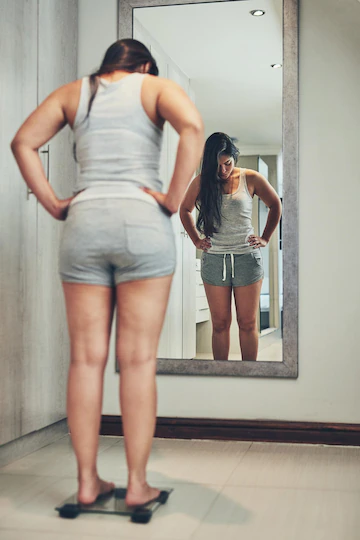Body Dysmorphic Disorder (BDD) is a mental health condition characterized by obsessive preoccupation with perceived flaws or defects in one’s appearance. Individuals with BDD often experience distress and engage in repetitive behaviors, such as excessive grooming, checking mirrors, or seeking reassurance, in an attempt to alleviate their anxieties. This disorder can significantly impact an individual’s quality of life, self-esteem, and overall mental well-being. In this article, we will explore the issue of Body Dysmorphic Disorder in South Africa and the efforts being made to address this condition.
While there is limited data on the prevalence of BDD specifically in South Africa, studies suggest that body image concerns and related disorders are common among South Africans. Societal pressures, cultural beauty standards, and the influence of media can contribute to the development and exacerbation of body dysmorphic symptoms. Both men and women are affected by BDD, with concerns ranging from facial features to body shape and size.
Addressing Body Dysmorphic Disorder requires a comprehensive approach involving awareness, early detection, and access to appropriate treatment. Increasing awareness about BDD among the general public, healthcare professionals, and educators is crucial in reducing stigma and promoting understanding. Educational campaigns, workshops, and media literacy programs can help debunk unrealistic beauty standards and foster a more positive body image culture.
Early detection and diagnosis are essential in effectively managing BDD. Training healthcare providers, including psychologists, psychiatrists, and primary care physicians, to recognize the signs and symptoms of BDD can lead to earlier interventions and improved outcomes. Encouraging open dialogue and destigmatizing mental health conversations can create a safe space for individuals to seek help and support.
Access to mental health services is a key component in addressing BDD. South Africa faces challenges in terms of availability, affordability, and accessibility of mental health resources. Efforts should be made to increase the number of mental health professionals, particularly those specialized in body image disorders. Integrating mental health services into primary healthcare settings and expanding telemedicine options can help reach individuals in remote areas or those who face barriers to in-person treatment.
Cognitive-behavioral therapy (CBT) is the most effective form of psychotherapy for BDD. CBT helps individuals challenge and modify distorted beliefs about their appearance, develop healthier coping strategies, and improve their overall well-being. Providing training and resources for mental health professionals to deliver evidence-based therapies like CBT can significantly contribute to the treatment of BDD in South Africa.
Support groups and peer networks can play a vital role in helping individuals with BDD feel understood and less alone. Connecting individuals with lived experiences of BDD can provide a sense of community, encouragement, and shared coping strategies. Community-based organizations and online platforms can facilitate the establishment of such support networks and provide a space for individuals to share their journeys and support one another.
Furthermore, collaboration between stakeholders is crucial in addressing BDD comprehensively. Government entities, mental health organizations, healthcare providers, and community leaders should work together to develop and implement strategies that prioritize mental health, promote positive body image, and ensure accessible and affordable treatment options for individuals with BDD.
In conclusion, Body Dysmorphic Disorder is a significant mental health issue that requires attention and action in South Africa. By increasing awareness, promoting early detection, expanding access to mental health services, and fostering support networks, individuals with BDD can receive the necessary help and support to improve their well-being. Through collaborative efforts, South Africa can create a society that values diverse body types, promotes positive body image, and prioritizes mental health for all.










